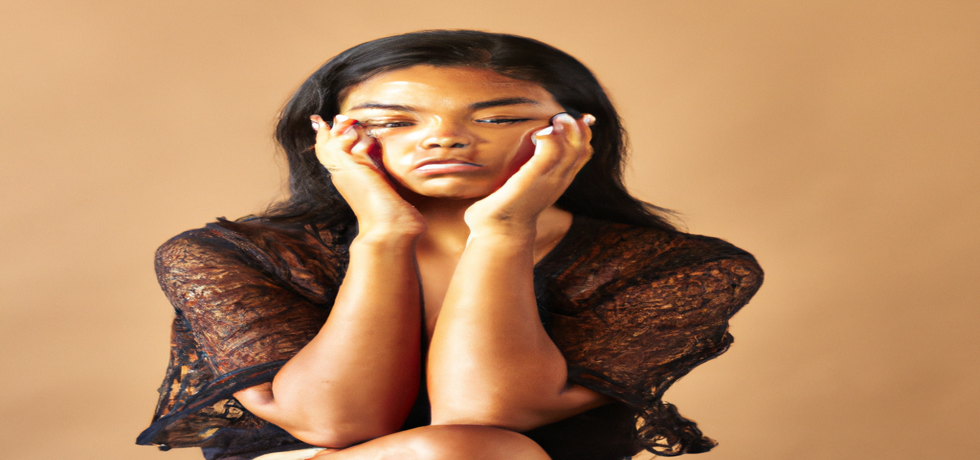
Understanding Acne: Hormonal vs Bacterial Battle
Your Guide to Managing Two Common Types of Acne
What Is Hormonal Acne?
Hormonal acne is typically triggered by fluctuations in hormonal levels, particularly androgens such as testosterone. These hormonal changes often occur during menstruation, pregnancy, or puberty, leading to an increase in sebum production. This type of acne is generally characterized by deep, tender pimples that usually appear around the lower face, especially along the jawline and chin. It may present alongside other symptoms such as mood swings or irregular periods, making it an important aspect to consider in acne treatment options.
What Is Bacterial Acne?
On the other hand, bacterial acne arises from the overgrowth of bacteria, particularly Propionibacterium acnes, which thrives in clogged hair follicles. This form of acne can manifest anywhere on the body and is often seen as a mix of whiteheads, blackheads, and other inflammatory lesions. The inflamed red pimples are frequently found across the face and body, indicating the skin’s struggle with excess oil and bacteria.
Differences Between Hormonal and Bacterial Acne
The distinctions between hormonal and bacterial acne are crucial in determining a proper treatment plan. Hormonal acne is often cyclical, becoming more pronounced during certain times of the month, while bacterial acne tends to appear without such patterns. Additionally, hormonal acne lesions are typically located around the jawline, while bacterial acne can show up on the face, chest, and back. Recognizing these discrepancies can be significant in developing an effective skincare routine for oily skin and addressing the needs specific to each type.
Treatment Options for Hormonal Acne
Managing hormonal acne often involves a combination approach. Ingredients like salicylic acid effectively clear clogged pores and soothe inflammation, while benzoyl peroxide combats bacteria and prevents new breakouts. Incorporating niacinamide into your routine can also help minimize redness and irritation, enhancing overall skin health. These methodologies serve as excellent acne treatment options to keep hormonal fluctuations at bay.
Treatment Options for Bacterial Acne
For bacterial acne, natural remedies can often provide relief as well. Tea tree oil stands out as a powerful antibacterial agent, effective in reducing inflammation and cleansing the skin. Retinol is another valuable tool that promotes skin renewal, preventing clogged pores and limiting the conditions conducive to bacterial growth. Including hyaluronic acid is also advisable; though not a primary treatment, it aids in hydration and can enhance skin comfort during an active acne battle.
Takeaway
Understanding whether your acne is hormonal or bacterial empowers you to make informed decisions about your skincare routine. Acknowledging the underlying causes is essential to tailor your treatment effectively. Remember, maintaining a regular and gentle skincare routine is vital, no matter which type you face.
FAQs
How can I tell if my acne is hormonal or bacterial?
Observing the breakout patterns can help differentiate the two. Hormonal acne typically appears around the jawline and might flare more prominently during your menstrual cycle, while bacterial acne can emerge randomly without such a pattern.
Can bacterial acne spread?
Bacterial acne may spread if proper skincare is neglected. Avoid touching or picking at the affected areas to minimize the risk of transferring bacteria.
Is it possible to treat hormonal acne effectively?
Yes, with the right combination of treatments, hormonal acne can be effectively managed. Consult with a dermatologist to create a tailored acne care routine specific to your needs.
Can lifestyle changes help with acne?
Absolutely! Maintaining a balanced diet, reducing stress, and following a consistent skincare regimen can significantly enhance your efforts in managing acne.
For professional assistance and expert advice from leading dermatologists like Dr. Hital Patel, experience the benefits of Understanding Acne: Hormonal vs Bacterial Battle with Hair & Skin Specialist Dr. Hital Patel at The Skin Artistry. Our clinics in PDPU Gandhinagar, Vastrapur Ahmedabad, and Hyderabad (Visiting Consultant) offer top-quality care and personalized treatments. Visit us today to learn more about our services and take advantage of our special offers! For more insights, updates, or to collaborate, stay connected with The Skin Artistry.

